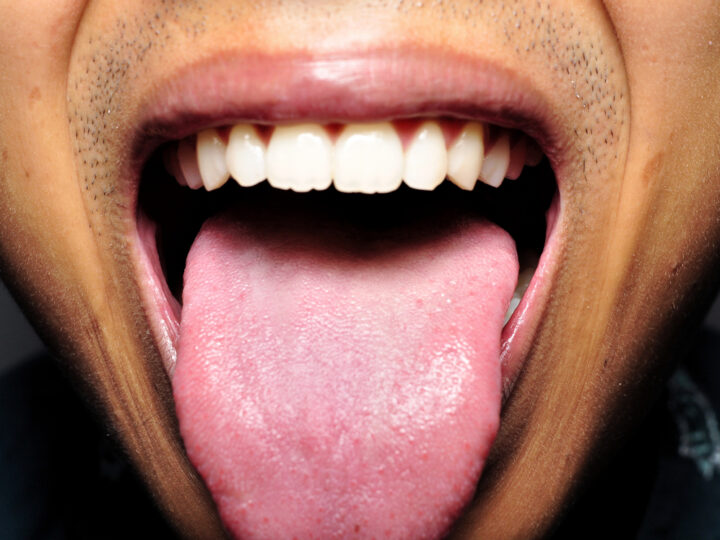HOW TO BOOST YOUR BRAIN NATURALLY
According to Eastern Medicine

Traditional Chinese Medicine and Ayurveda have for thousands of years revered brain health. The brain is an important part of the nervous system and one of the largest organs in the body. While nootropics are all the rage now, the ancient medicine systems have long considered “Mind Body” health. In fact, in TCM the brain is considered one of six “Extraordinary Organs.” Western Medicine Medical Schools and research studies are catching on, and are now looking at mind body approaches such as meditation, yoga, tai chi, cognitive skills, lifestyle interventions, and positive psychology. They’re researching how these modalities can prevent or improve stress-related illnesses, ranging from asthma to hypertension, functional bowel diseases and pain syndromes. Needless to say, there is a lot of research and for good reason.
Traditional Chinese Medicine and the Brain
According to Traditional Chinese Medicine (TCM), a comprehensive healthcare system developed over 2500 years ago, the brain is in charge of controlling how the body and mind work. The brain is referred to in TCM as the “Sea of Marrow,” and is said to be the source of cognition, memory, and awareness in humans. According to TCM philosophy, a vital element called “Qi,” which travels through the body’s “meridians,” nourishes the brain. Mental and emotional abnormalities, as well as other health issues, can result from the disruption of Qi flow.
To reestablish the Qi flow to the brain and encourage normal brain function, TCM practitioners use acupuncture, herbal medication, and dietary therapy. The following TCM suggestions will help you naturally sharpen your mind:
Acupuncture:
 In order to reestablish the flow of Qi, tiny needles are inserted into precise body sites during acupuncture, a TCM therapy. Acupuncture has been linked to improved memory and cognitive performance, according to research. Acupuncture can be applied to a number of locations to enhance brain function with most being in the head, neck, and feet. The following specific acupuncture sites are used often by TCM practitioners to improve brain health:
In order to reestablish the flow of Qi, tiny needles are inserted into precise body sites during acupuncture, a TCM therapy. Acupuncture has been linked to improved memory and cognitive performance, according to research. Acupuncture can be applied to a number of locations to enhance brain function with most being in the head, neck, and feet. The following specific acupuncture sites are used often by TCM practitioners to improve brain health:
- Du 20 (Baihui) – This point, which is situated at the top of the skull, is thought to enhance mental focus, memory, and attention
- Yintang – This point, which is situated between the eyebrows, is thought to improve mental clarity and quiet the mind
- LI 4 (Hegu): This point, which may be found on the hand between the thumb and the index finger, is thought to enhance mental clarity and lessen anxiety
Herbal medicine:
Using herbs to enhance brain health has a long history in TCM. Ginkgo Biloba, gotu kola, and ginseng are some of the herbs for brain health that are most frequently utilized. These herbs have been demonstrated to reduce inflammation, increase memory and focus, and improve blood flow to the brain. When taking herbs, it’s crucial to carefully follow the dosage recommendations and seek advice from a trained TCM practitioner to make sure the herbs are suitable for your unique needs. The following information on brain health is only for general information and you should speak with a practitioner to see if this is right for you.
- Ginkgo biloba – Studies on this herb have shown that it can lower inflammation, improve blood flow to the brain, and improve memory and focus. It is frequently taken as a capsule, and a daily dose of 120–240 mg is advised.
- Gotu kola – For millennia, people have utilized this herb to promote brain function. It is supposed to increase mental focus and clarity while lowering anxiety. It is frequently taken as a capsule, and 1-2 grams daily intake is advised.
- Ginseng: Ginseng has long been utilized in TCM to promote brain health. It supposedly enhances concentration, memory, and cognitive function. It is frequently consumed in the form of capsules or tea, with a daily dosage of 200–400 mg.
It’s crucial to carefully follow dosage recommendations when taking Chinese Medicinal herbs, and to speak with a licensed practitioner to be sure the herbs are suitable for your unique needs. It’s also vital to keep in mind that some of these herbs may interfere with specific prescriptions or health issues, so it’s crucial to talk to your doctor before using them.
Dietary Therapy:
According to TCM, eating has a key role in preserving health and avoiding disease. Eating a healthy, balanced diet that includes brain-nourishing foods like fatty fish, almonds, and leafy greens might aid increase mental acuity and memory. A balanced, healthy diet is essential for maintaining brain function. These specific foods can assist in enhancing brain function:
- Fatty fish – Omega-3 fatty acids, which are crucial for the health of the brain, are abundant in fish like salmon, mackerel, and sardines. It has been demonstrated that omega-3 fatty acids enhance cognition and memory.
- Nuts – Vitamin E, which is abundant in nuts like cashews, almonds, and walnuts, has been demonstrated to enhance cognitive performance and lower the risk of Alzheimer’s disease
- Leafy Greens – Foods that are high in antioxidants and other nutrients that boost brain function include spinach, kale, and broccoli. It has been demonstrated that these veggies enhance cognitive function and lower the risk of dementia.
Ayurveda and the Brain:
Ayurveda is a traditional medical practice rooted in India and it dates back more than 5,000 years. According to Ayurveda, the brain serves as the seat of consciousness and controls mental and emotional processes. The brain is referred to as “Majja Dhatu” in Ayurveda.
Three doshas, or energies, are said to control the brain in Ayurveda: Vata, Pitta, and Kapha. These doshas have an impact on how the brain functions, and disharmonies can result in mental and emotional disharmonies. Here are some Ayurvedic tips to increase your mental capacity naturally
Meditation:
According to Ayurveda, meditation has several advantages for enhancing mental and emotional well-being. It has been demonstrated that meditation enhances brain function, lowers stress, and enhances cognitive performance. An effective method for raising mental and emotional health and brain function is meditation. Here are some figures showing how meditation might enhance mental performance:
- Regular meditation can enhance cognitive performance and lower the risk of Alzheimer’s disease, according to a study published in the Journal of Alzheimer’s Disease.
- A study indicated that just four days of meditation can enhance cognitive function and boost brain gray matter. The study was published in the journal Frontiers in Human Neuroscience.
- A study found that frequent meditation can lessen the signs of anxiety and depression and enhance general wellbeing. The study was published in the journal Psychosomatic Medicine.
Herbal Medicine:
Ashwagandha, Brahmi, and Shankhapushpi are just a few of the herbs used by Ayurveda to maintain brain health. These herbs have been demonstrated to improve cognition and memory, lessen stress, and encourage relaxation.
- One of the most prominent Ayurvedic medicines for brain health is brahmi (Bacopa monnieri). It has been used for millennia to improve mental acuity, focus, and memory. Brahmi has been found in studies to enhance cognitive function and lessen signs of anxiety and despair. Brahmi is frequently used as a pill, with a daily dosage of 300–500 mg.
- Ashwagandha (Withania somnifera): Another well-liked Ayurvedic herb, ashwagandha is well-known for promoting brain function. It is claimed to increase memory and cognitive performance, lessen stress and anxiety, and generally promote wellbeing. According to studies, ashwagandha can lessen anxiety and depressive symptoms while also enhancing cognitive function. Ashwagandha is frequently used as a powder or tablet, with a daily dosage of 500–1000 mg.
- Shankhapushpi (Convolvulus pluricaulis): This Ayurvedic herb is renowned for its capacity to improve memory and cognitive function. It is claimed to enhance focus and mental clarity, as well as lessen depressive and anxious symptoms. According to studies, sankhapushpi can lessen anxiety and depressive symptoms while also enhancing cognitive function. 500–1000 mg per day is the suggested dosage for sankhapushpi, which is often taken as a capsule or powder.
- Tulsi (Ocimum sanctum): Tulsi, sometimes referred to as Holy Basil, is an Ayurvedic plant that has a reputation for lowering anxiety and stress levels. It is claimed to support cognitive function, mental acuity, and general well-being. Tulsi has been found in studies to improve cognitive function and lessen the signs of anxiety and despair. Tulsi is frequently consumed as tea or in pill form, with a daily intake of 500–1000 mg.
It’s crucial to carefully follow dosage recommendations when taking these Ayurvedic herbs, and to speak with a licensed Ayurvedic practitioner to be sure the herbs are suitable for your unique needs. It’s also vital to keep in mind that some of these herbs may interfere with specific prescriptions or health issues, so it’s crucial to talk to your doctor before using them.
Dietary Therapy:
According to Ayurveda, a healthy diet should include a variety of whole grains, fresh fruits and vegetables, nuts, and seeds. Additionally, because they might impair brain function, processed meals, sugar, and caffeine are discouraged by Ayurveda. You can eat according to your dosha and constitution in Ayurveda and, in general, eat foods that you can digest.
You may maintain your brain health naturally and enhance your general wellbeing by including these habits in your everyday routine. It’s crucial to remember that these methods should not be utilized in place of medical advice from a professional and should instead be combined with additional therapies as necessary. I advise speaking with an experienced practitioner to create a customized treatment plan that addresses your particular needs if you’re interested in learning more about traditional Chinese medicine or Ayurveda for improving brain health. A healthy brain allows us to think more clearly and live happier lives.
Newer
Understanding the Basics of TCM
Older
Unveiling the Wisdom of Traditional Chinese Medicine: A Comprehensive Introduction
Comments (0)
Leave a reply
You must be logged in to post a comment.




